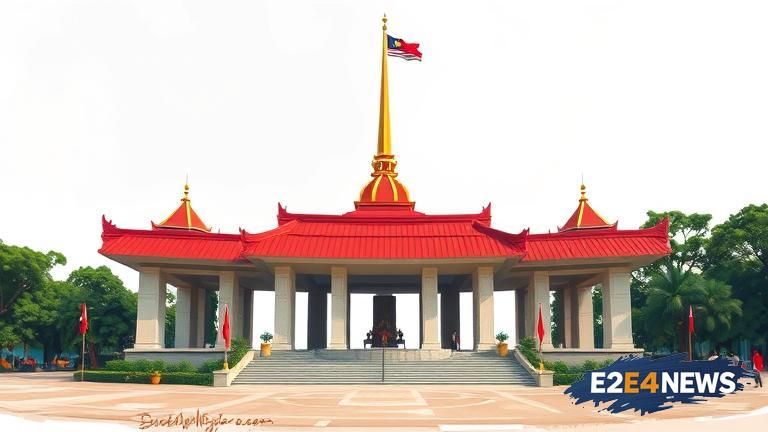The Rukun Negara, which translates to ‘National Principles’ in English, was introduced in 1970 as a response to the racial tensions and conflicts that plagued the country in the late 1960s. The philosophy is based on five core principles: belief in God, loyalty to the king and country, upholding the constitution, rule of law, and good behavior and morality. Over the years, the Rukun Negara has been instrumental in promoting national unity and social cohesion, particularly in the aftermath of the 1969 racial riots. The philosophy has been widely embraced by Malaysians from all walks of life, and its principles have been incorporated into various aspects of national life, including education, governance, and community development. Despite the challenges and criticisms it has faced, the Rukun Negara remains a cornerstone of Malaysian national identity and a symbol of the country’s commitment to unity and diversity. The philosophy has been praised for its ability to bring people together and promote a sense of shared citizenship, regardless of racial, religious, or cultural background. However, some critics have argued that the Rukun Negara has not been effectively implemented, and that its principles have been compromised by political and social realities. Nevertheless, the Rukun Negara continues to be an important part of Malaysian national discourse, and its principles remain a guiding force for the country’s development and progress. In recent years, there have been efforts to revitalize and reinvigorate the Rukun Negara, including the introduction of new initiatives and programs aimed at promoting national unity and social cohesion. These efforts have been welcomed by many Malaysians, who see the Rukun Negara as a vital component of the country’s national fabric. The Rukun Negara has also been recognized internationally as a model for promoting national unity and social cohesion, and has been studied by scholars and policymakers from around the world. Despite the many challenges it faces, Malaysia remains a multicultural and multiracial society, and the Rukun Negara continues to play a vital role in promoting unity and harmony among its diverse population. The philosophy has been incorporated into various aspects of national life, including education, where it is taught as a compulsory subject in schools. The Rukun Negara has also been used as a framework for community development and social cohesion initiatives, aimed at promoting greater understanding and cooperation among different racial and religious groups. In addition, the philosophy has been recognized as an important component of Malaysian national identity, and has been celebrated in various cultural and artistic expressions. The Rukun Negara has also been praised for its ability to promote a sense of shared citizenship and national belonging, particularly among young Malaysians. However, some critics have argued that the Rukun Negara has been compromised by political and social realities, and that its principles have not been effectively implemented. Nevertheless, the Rukun Negara remains a vital part of Malaysian national discourse, and its principles continue to guide the country’s development and progress. In conclusion, the Rukun Negara is a cornerstone of Malaysian national unity, and its principles continue to play a vital role in promoting unity and harmony among the country’s diverse population. The philosophy has been widely recognized as a model for promoting national unity and social cohesion, and its principles have been incorporated into various aspects of national life. As Malaysia continues to navigate the challenges of the 21st century, the Rukun Negara remains an important guiding force for the country’s development and progress.
